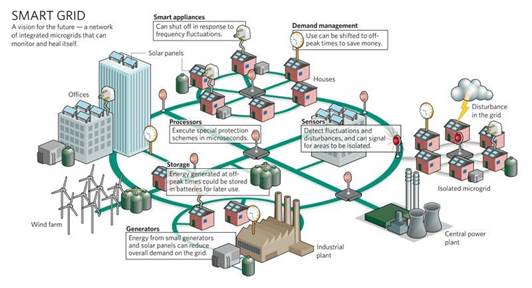Saving energy today for a better tomorrow
Every little errand in today’s world requires energy; whether it’s driving to work, browsing through emails, watching podcasts or reading blogs. Energy, be it petrol power, diesel power, electricity, nuclear energy, runs through the veins of our world, driving it. Without energy world will come to a screeching halt. No wonder ‘saving energy’ is on top of the lists of all major world organizations. From World Bank, WWF to governments and NGOs every organizational body is putting spotlight on renewable sources of energy. Every educational curriculum, environmental journal and company policy focuses on saving energy and giving numerous green awards. Energy dependent countries like EU countries, Japan, China etc., are in dire needs of finding ways to substitute their heavy dependence on crude oil and gas (generally imported from Russia or Middle East) with more sustainable, indigenous and carbon neutral energy sources. According to Reuters, seven EU member countries have decided for strict and binding energy saving goal considering the current crisis going on in Ukraine.
Though switching to sustainable energy is the way forward, another way of reducing energy consumption is to increase energy taxes on fossil fuels, provide subsidiaries and incentives on usage of renewable sources. The higher the carbon contents of the fossil fuel, the higher the tax. Energy taxes leverage the use of cleaner (less carbon content) fuels in a small way.
No matter how much energy is saved, unless the energy efficiency is increased, there cannot be a substantial improvement in Earth’s current condition and the way world functions. Though the terms energy saving and energy efficiency are generally used together, energy cannot be effectively saved until efficiency is increased, be it efficiency of vehicles, output efficiency of humungous sized factories, durability of everyday lights, working life of electronic gadgets or lasting power of mobile phones. Increasing efficiency of already existing infrastructure requires large amount of investment and expenditure but in the long run, these costs seem nullified by the fiscal reserves saved and subsequent environmental protection. If reduction in energy cost starts at individual level, its domino effect will definitely spill over the society at large.
There are numerous ways to start small in this direction; using clean AC filters, carpooling, not keeping gadgets in ‘standby’ mode, recycling CFL bulbs, using solar water heaters instead of geysers are just some of them. Reducing carbon footprint and observing Earth Hour are some of the small steps that being taken worldwide to tackle this. This frugal nature while consuming energy and in turn reducing energy costs must be practiced at every level- individual, production companies and a country. A dime saved today will be worth a penny tomorrow.
Energy costs are the monetary and non-monetary costs (environmental impact) associated with the production, transportation and usage of energy. Until and unless the costs at all the three junctures (production, transportation and usage) is decreased; energy cannot be fruitfully saved. Energy production costs can be reduced only if there is development and implementation of cutting edge technology in every fuel consuming sector.
Energy transportation involves lying of electricity grids, usage of supertankers, transportation of petroleum products- petrol, diesel, LPG etc., to consumers. Electricity grids should give way to Smart Grids. (See figure below) Though the change in the grid pattern will mean a complete overhaul of the electricity sector, but the long term effects of such a change will be terrific.
Transportation of petrol chemicals can be improvised only if there is a surge of fuel efficient vehicles (oil tankers, two wheelers, four wheelers, airplanes, trains etc.)

Only if there are practical changes in the way energy is consumed by the general population, there will be visible change across the globe. City lights (especially public lighting) should be powered using solar power, fluorescent lights should be made cheaper than incandescent lights, running and maintenance cost of battery operated vehicles should be reduced, moreover the buying cost of battery operated vehicles must be drastically reduced, train/tube transport should be accessible from even remote areas, every high traffic route which has high vehicle and pedestrian footfall should have excellent and substantial area designated for cyclists and pedestrians.
The fight against global warming cannot be won overnight; it might take eons before the Earth is restored to its original unpolluted state. The community in its entirety must fight this battle.